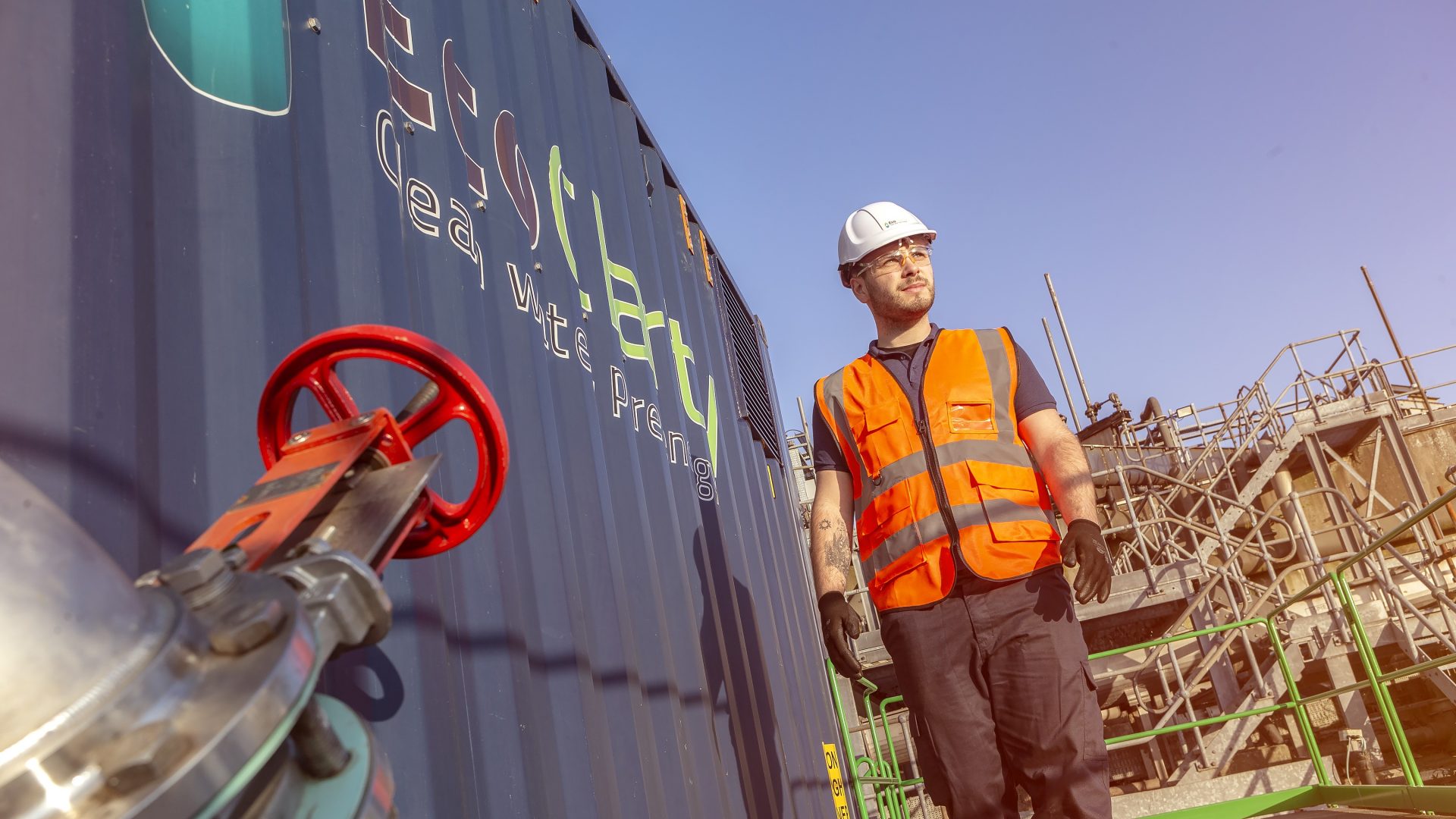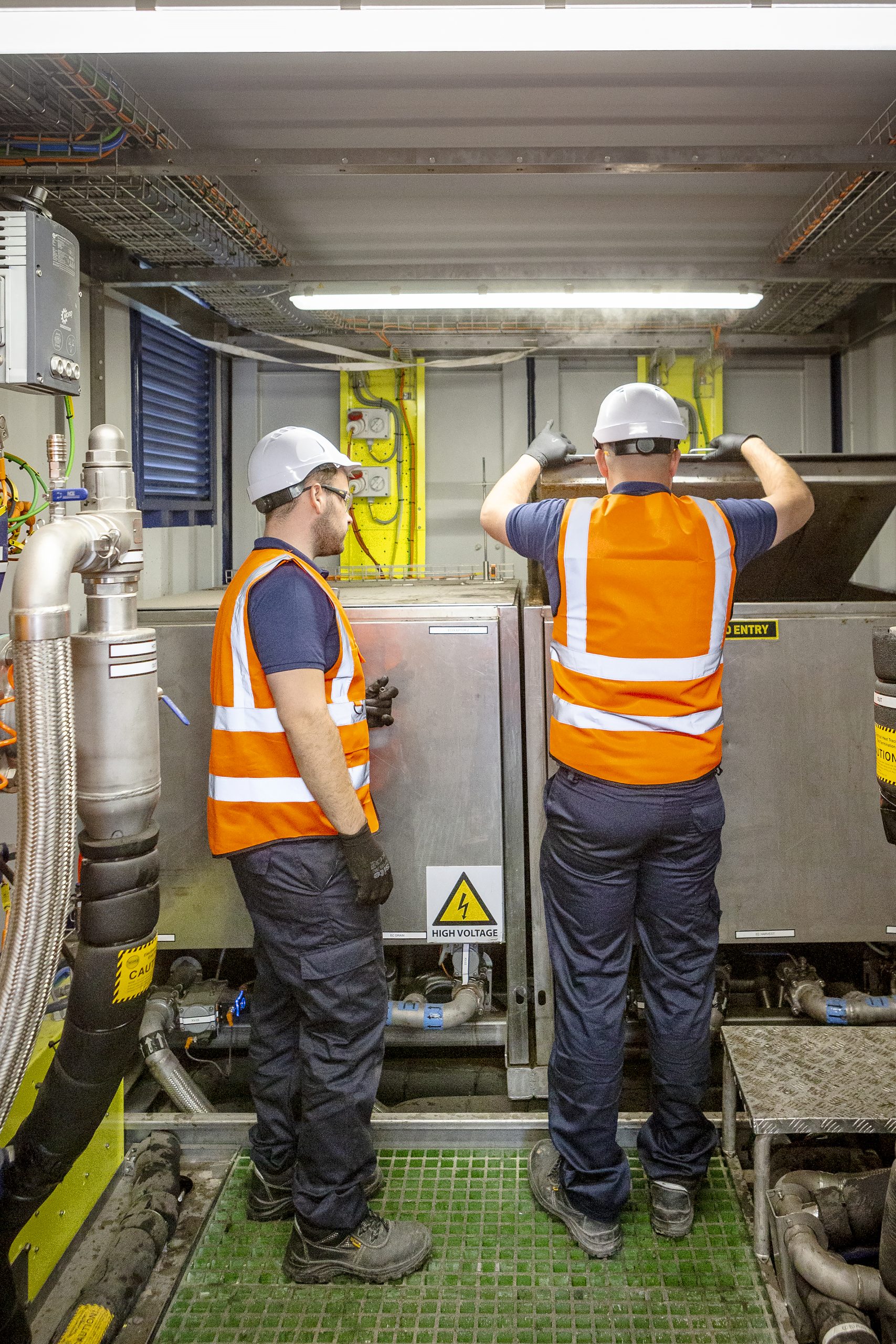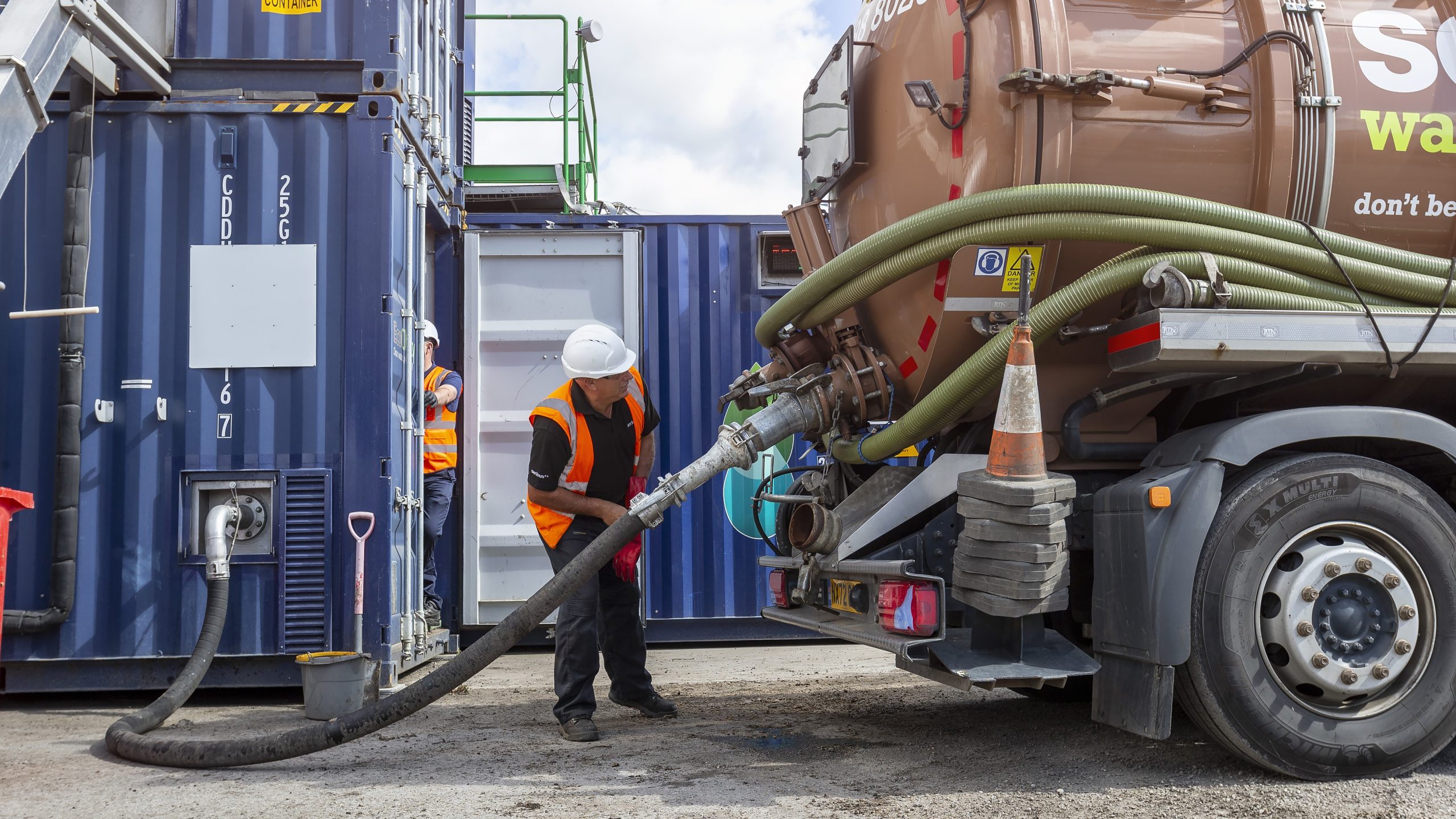Trials of a cutting-edge fats, oils and grease (FOG) Recovery Hub at Yorkshire Water’s wastewater treatment works in Hull, UK, are helping the utility improve environmental performance while lowering costs, says Chris Clemes, chief executive of engineering technology company EcoClarity.
Sewer blockages are a major concern in the UK, with an estimated 200,000 occurring annually, and FOG – fat, oil and grease – cited as the cause in around 75% of cases.
A build-up of FOG hinders the smooth operation of sewer systems and wastewater treatment works (WwTW), shortens the lifespan of critical assets and increases maintenance costs. This burden ultimately falls on water companies.
“As a water company, we suffer from thousands of preventable blockages each year from fats going down sewers. FOG blockages, or fatbergs impair the performance of wastewater assets which can cause sewer overflows, that can impact the environment,” explains Yorkshire Water’s waste services manager James Gudgeon.
“Water companies can spend a significant amount of money on staff and equipment costs to remove FOG from our sewers and send it to landfill – which also has an environmental impact. Additionally, network failures caused by FOG blockages carry the risk of costly environmental performance fines.
“In 2021, Isle suggested working with EcoClarity on our wastewater site, at a time we were looking to grow our imported waste business. The EcoClarity proposition gives us the ability to import different types of waste that we would not normally be able to treat.”
As part of Yorkshire Water’s drive to increase efficiency within its operations, the water utility works alongside technology consultancy Isle to identify the latest technologies and innovations in clean and wastewater.
Yorkshire Water is the first UK water utility to install EcoClarity’s patented technology – located at its Hull wastewater treatment site. The modular, containerised EcoClarity system was introduced in February 2024 and will be used to treat FOG wastewater generated onsite during cleaning and maintenance procedures, as well as loads from waste management companies.
The process separates problematic FOG from wastewater and recovers a valuable energy resource for biodiesel production, while returning safe water to the environment. The operational model involves installing a network of FOG Recovery Hubs at wastewater treatment works and other sites suitable for liquid waste tankers to offload grease trap waste.
“We’re turning FOG waste into a valuable resource,” says Chris Febrey, EcoClarity’s operations manager. “By accurately measuring and verifying the composition of waste, we can verify reductions in greenhouse gas emissions for businesses and promote a circular economy.
“Our collaboration with Yorkshire Water highlights the importance of proper FOG management.”
The installation has a myriad of benefits for Yorkshire Water. Alongside the environmental and financial rewards of safely removing the FOG from the environment.
“Working in partnership is a significant commitment, but it was an easy decision once we looked at the holistic benefits of EcoClarity’s hubs,” says Gudgeon. “It brings us another avenue of engagement with the food industry and the FSEs [food service establishments] out there; it reduces the amount FOG going into sewers at source – preventing sewer blockages and protecting the environment, ultimately resulting in protecting our people not having to do high risk jobs.
“It also enables us to bring in new waste streams and new revenue streams into Yorkshire Water and ultimately that money is reinvested into the business and goes towards helping keep customer bills low – it is a true circular economy in action,” he adds.
FOG is a common by-product of commercial kitchens and food processing facilities, but its disposal has long posed a challenge to the water sector. Currently, too much FOG enters the sewers and drains, causing blockages, which significantly impact the public, the environment, and are costly for water companies to clear.
The alternative is landfill disposal, which fails to capitalise on the value of FOG as a potential renewable fuel source. The patented EcoClarity system efficiently separates fat, oils and grease from wastewater, resulting in a 98% concentration of oil suitable for biodiesel production, which could ultimately be used to power the trucks transporting the FOG.
As EcoClarity sites are registered with Argent Energy’s Carbon Certification Scheme, the company can track the volume of greenhouse gas (GHG) emissions saved by the biodiesel produced from its FOG feedstock. This allows third-party companies, disposing of their waste in this way, to demonstrate their commitment to sustainability with transparency.
Long travel distances, slow offloading times, limited data on waste content, and a lack of transparency in pricing have historically led to frustration and a drain on profits for liquid waste operators. Thanks to EcoClarity’s highly efficient disposal opportunities, first at Argent Energy’s refinery in Stanlow, Cheshire, and now at Hull wastewater treatment works, travel distances for hauliers are minimised, along with fuel consumption.
EcoClarity’s FOG Recovery Hubs analyse the precise mass and FOG content of every load that comes in. As the FOG-rich waste goes through a mass meter, it is quantified and the data shared with the client – supporting their green credentials.
This also translates to quicker turnarounds for tankers, lower operating costs, and more time spent serving customers. Boasting up to a 87% reduction in greenhouse gases, biodiesel contributes to climate change mitigation and could be used to power tankers transporting wastewater – creating a tight circular economy of value.
“We are working with EcoClarity towards the potential nirvana of being able to harvest the FOG from our sewer network and turn it into biodiesel that fuels our vans. That’s the end goal,” added Gudgeon.
Further EcoClarity hubs are being planned by Yorkshire Water, with Knostrop wastewater treatment works in Leeds next on the list. Sites belonging to United Utilities and Southern Water, as well as two large entertainment venues in London and Cornwall, are also in the pipeline.





